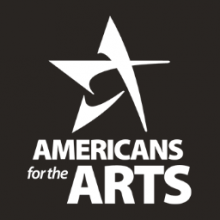On Inauguration Day, we witnessed an explosion of arts, culture, and creativity in Washington, DC. Arts and culture were the backbone of the entire day—they carried the symbols of a broken country knitting itself back together, they celebrated our history and articulated visions of our shared future, they consolidated in striking images and economical language the whole complex ethos of a new presidential administration dedicated to unity, hope, and an American Renaissance. It was an inspiring thing to see, and hopefully bodes well for the position, and support of, arts, culture and the creative economy in the Biden/Harris Administration. In the days and weeks to come, President Biden will step into complex negotiations to build and then pass first the American Rescue Plan, a $2 trillion relief package, and then a subsequent large-scale workforce and infrastructure recovery bill—and this is where the rubber meets the road when it comes to how much, and in what ways, the new administration thinks about the centrality of arts, culture, and the creative economy. There can be no national recovery, no American Rescue, without the creative economy, and the 5.1 million creative workers who make it up.
Read More






















